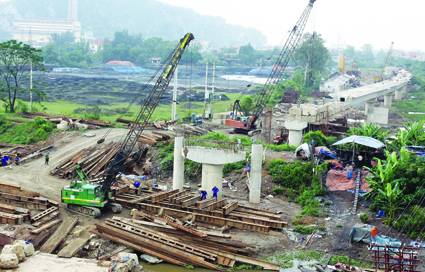Effective on January 1 next year, the Notarization Law (the Law) provides notaries, notarial practice organizations, notarial practice, notarization procedures and state management of notarization.
Compared to the current Notarization Law enacted in 2006, the Law contains many new provisions.
Notarial practice organizations
To ensure the quality of notarization activities, the Law establishes a principle that the establishment of notarial practice organizations must comply with this Law and the Prime Minister’s master plan on development of notarial practice organizations.
The Law provides two forms of notarial practice organizations as currently prescribed, including notary bureaus and notary offices.
According to Article 18, notary bureaus may be established only in geographical areas where conditions for development of notary offices are not available. Notary bureaus will be established under decisions of provincial-level People’s Committees as public non-business units attached to provincial-level Justice Departments. When it is no longer necessary to maintain a notary bureau, the provincial-level Justice Department will submit a plan for transformation of the notary bureau into a notary office to the provincial-level People’s Committee for decision. If a notary bureau cannot be transformed into a notary office, the provincial-level Justice Department will submit a plan for dissolution of the notary bureau to the provincial-level People’s Committee for decision.
Notary offices will be organized and operate in the form of partnerships in accordance with the Law and other relevant regulations. As partnerships, they must have no capital contributors. A notary office must have at least 2 notaries being its partners. Within 24 months after the effective date of the Law, notary offices established by single notaries under the 2006 Law must be converted into notary offices organized and operating under the Law. Compared to the 2006 Law, the Law adds provisions on change of partners of notary offices. Under Article 27, a notary being a partner of a notary office may terminate his partnership status at his own will or in other cases prescribed by law. A notary office may admit new partners if its current partners accept them.
Notarial practice
Three forms of notarial practice are specified in Article 34, including: notaries of notary bureaus; notaries being partners of notary offices; and notaries working under labor contracts for notary offices.
Under the Law, the Justice Minister will appoint notaries to conduct notarial practice. Provincial-level Justice Departments will register notarial practice for and grant notary’s cards to notaries. Notarial practice organizations must purchase professional liability insurance for their notaries. Those established before the effective date of the Law must purchase professional liability insurance for their notaries within 90 days after the Law takes effect.
Notary practice organizations will pay compensation for damage caused to notarization requesters and other organizations and individuals due to faults of their notaries or employees or interpreters being their collaborators in the process of notarization. These persons will indemnify the compensation amounts to their notary practice organizations. If they fail to do so, the notary practice organizations may bring their disputes to court.
Notarization charges and remuneration and other expenses are clearly specified in the Law. Accordingly, the tariffs, collection, payment, use and management of notarization charges must comply with law. For notarization remuneration, provincial-level People’s Committees will promulgate ceiling rates to be applied to notarial practice organizations in localities. Notarial practice organizations may fix remuneration rates for each job which must not exceed the ceiling rate and post them up at their head offices. Notarization requesters and notarial practice organizations may agree on other expenses according to the principles posted up at these organizations.
Notarization procedures
The Law devotes Chapter V to providing notarization procedures. Besides general procedures, the Law stipulates specific procedures for notarization of real estate mortgage contracts, authorization contracts, testaments, written agreements on division of estate, written declarations for acceptance of estate or written disclaimers of estate, custody of testaments and notarizations of translations.
For real estate contracts and transactions, notaries may only notarize these contracts and transactions within the province where their notarial practice organization is located, excluding testaments or written disclaimers of real estate and letters of authorization related to the exercise of real estate-related rights. Real estate mortgage contracts must be notarized at a notarial practice organization located in the province where the real estate is located.
Overseas diplomatic mission and consulates of Vietnam may notarize testaments, written disclaimers of estate, letters of authorization and other contracts and transactions, excluding contracts on purchase and sale, conversion, transfer, donation, lease, mortgage or capital contribution of real estate in Vietnam.-

